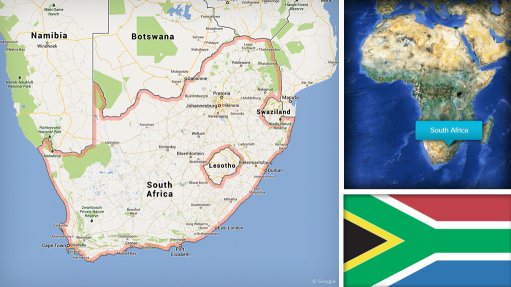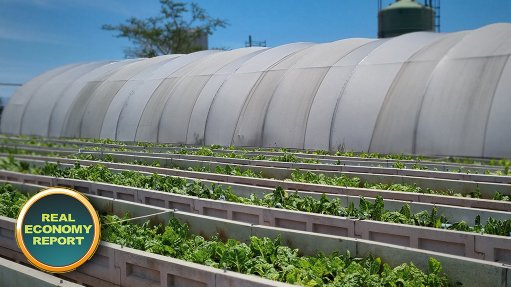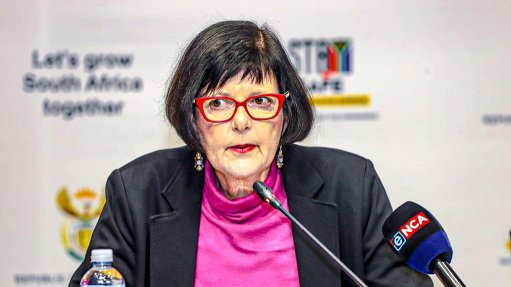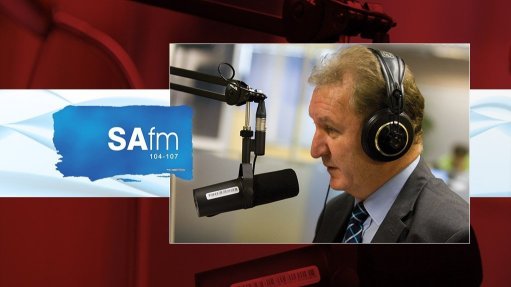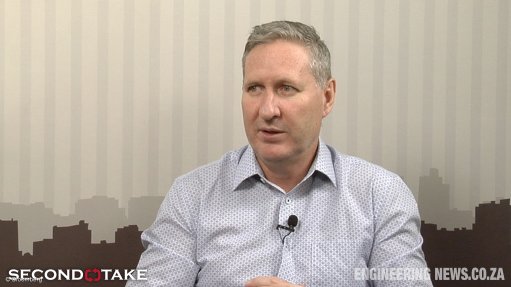Analysing customs stats a business imperative
On February 2, 2009, I had my 15 minutes of fame. I will never forget that morning. It was very early in the morning, with only a few cars on the road, as I made my way to my office at the Economics Department of the University of Pretoria. I got stuck at a robot. It was one of those robots that you did not want to get stuck at during that time of the morning. It was a major intersection, so there was not much else to do but to wait.
Staring across Lynnwood drive, my eye caught the Business Day poster which, in bold capital letters, announced that there was a major error in South Africa’s merchandise trade statistics. I had uncovered the error. I tried to get it fixed and thought the only way to do so was to give it publicity. So, I alerted a journalist at Business Day to the error. I had been expecting a story in the Business Day, but not the headline. It was an exclusive. Soon my cellphone would start ringing. It is amazing how quickly one’s cellphone gets known. For three days, the story ran, which resulted in the Minister of Finance and the South African Revenue Service (Sars) issuing an official statement correcting the R23-billion error in South Africa’s merchandise trade statistics. Just in case you were wondering, the error was detected a month or so before, but its timing was so as to allow for the least intrusive correction.
It has always been my contention that there is significant value in analysing South Africa’s merchandise trade statistics, least of which is that it affords insight into the cornerstones of customs. If you are not a regular reader of this column, the cornerstones of customs are classification, valuation and origin. If, as a business, you do nothing else, you need to ensure that you are compliant with the cornerstones of customs.
Do you take any account of trade statistics in your business analysis? Ever have? Have you analysed them? You know that these statistics are a business tool? Do you know that you can obtain them without a charge from Sars?
While there might be reluctance on the part of South African businesses to employ merchandise trade statistics as a business tool, the World Customs Organisation (WCO) has other ideas. On January 9, the WCO hosted a one-day workshop on customs data analytics at its headquarters, in Brussels, Belgium. The event, the first of its kind, was organised by the WCO to explore and discuss the potential use of data analytics in customs.
The aim of the workshop was to discuss ways in which customs authorities could take greater advantage of the use of data analytics in customs as an extremely powerful tool for improving the way customs administrations work, at both the operational and strategic levels. According to the WCO, there is evidence that the massive amount of data generated by customs administrations is currently underused. As a consequence, the WCO anticipates that enhancing customs administrations’ ability to perform increasingly sophisticated analytics using the available data will become even more crucial in all future policymaking processes.
The workshop participants included representatives from academia and international organisations, as well as practitioners from customs administrations. It is not evident whether South Africa had any representation at the workshop. The discussions and presentations focused on customs and trade data, as well as data analysis methods that could be used to help customs administrations gain a better understanding of themselves and the work they do, thus shaping the way towards more efficient and effective customs administrations.
The WCO wants customs authorities to develop data analytics skills and encourages them to make greater use of data analytics as a key tool for more robust analyses when meeting with participants.
The workshop concluded, with agreement, that the available data provided by some customs administrations would be used to produce research papers and collated and summarised for inclusion in a book for the customs community.
Comments
Press Office
Announcements
What's On
Subscribe to improve your user experience...
Option 1 (equivalent of R125 a month):
Receive a weekly copy of Creamer Media's Engineering News & Mining Weekly magazine
(print copy for those in South Africa and e-magazine for those outside of South Africa)
Receive daily email newsletters
Access to full search results
Access archive of magazine back copies
Access to Projects in Progress
Access to ONE Research Report of your choice in PDF format
Option 2 (equivalent of R375 a month):
All benefits from Option 1
PLUS
Access to Creamer Media's Research Channel Africa for ALL Research Reports, in PDF format, on various industrial and mining sectors
including Electricity; Water; Energy Transition; Hydrogen; Roads, Rail and Ports; Coal; Gold; Platinum; Battery Metals; etc.
Already a subscriber?
Forgotten your password?
Receive weekly copy of Creamer Media's Engineering News & Mining Weekly magazine (print copy for those in South Africa and e-magazine for those outside of South Africa)
➕
Recieve daily email newsletters
➕
Access to full search results
➕
Access archive of magazine back copies
➕
Access to Projects in Progress
➕
Access to ONE Research Report of your choice in PDF format
RESEARCH CHANNEL AFRICA
R4500 (equivalent of R375 a month)
SUBSCRIBEAll benefits from Option 1
➕
Access to Creamer Media's Research Channel Africa for ALL Research Reports on various industrial and mining sectors, in PDF format, including on:
Electricity
➕
Water
➕
Energy Transition
➕
Hydrogen
➕
Roads, Rail and Ports
➕
Coal
➕
Gold
➕
Platinum
➕
Battery Metals
➕
etc.
Receive all benefits from Option 1 or Option 2 delivered to numerous people at your company
➕
Multiple User names and Passwords for simultaneous log-ins
➕
Intranet integration access to all in your organisation







